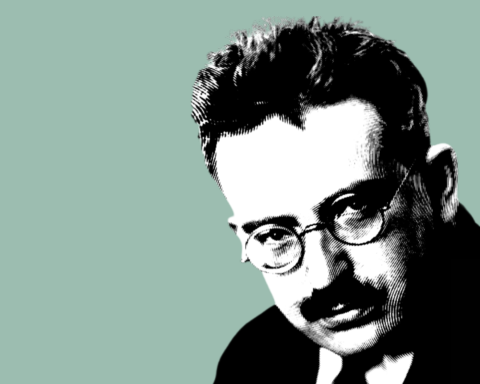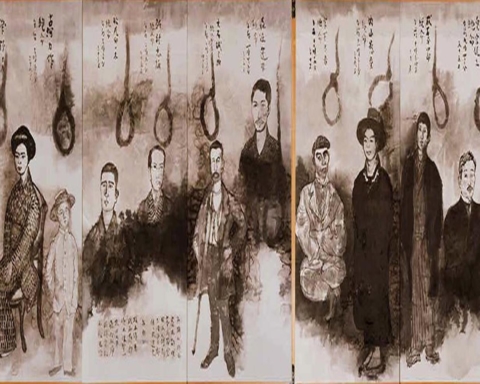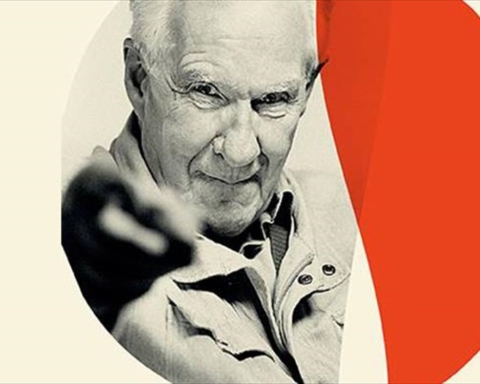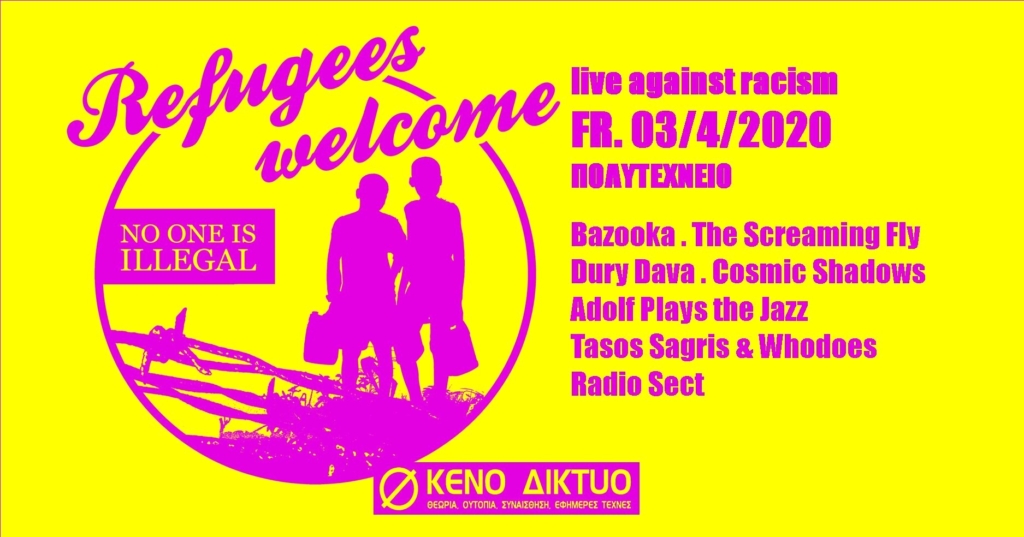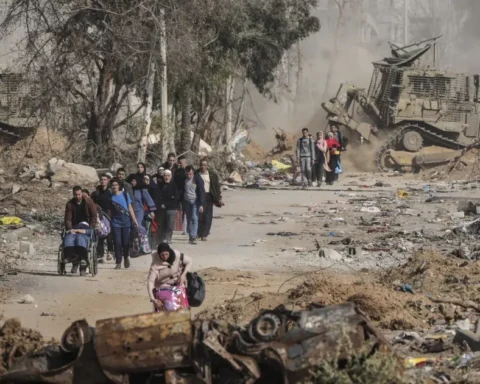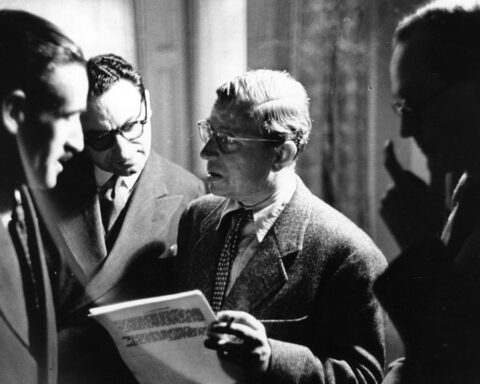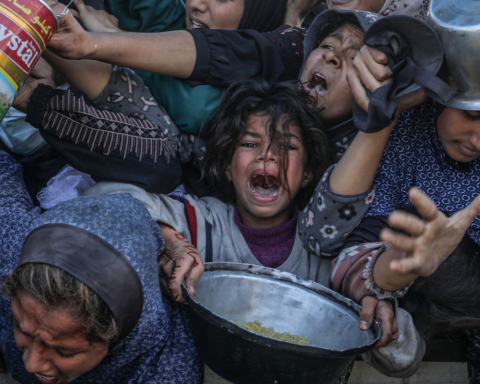This article first appeared at the amazing magazine The Point from Chicago and is part of a series of columns on public philosophy by Agnes Callard; read more here.
Probably this is not the end of the world. But a plague is creeping around the globe at a seemingly exponential rate, killing some of us and affecting all of us. And this pandemic is only the most recent and most sudden of a series of afflictions facing humanity. We are rapidly replacing our natural habitat with one that is, on the one hand, made by human beings, and, on the other, proving difficult for us to manage—a situation we euphemistically refer to as “climate change.” On the political front, the past decade has seen a rise in civil unrest worldwide, and the leaders of a number of countries have given us reason to be less optimistic than we used to be about the prospects for global democracy. Given the ever-cheapening technology, weapons—including those of mass destruction—must be proliferating unnoticed. And all of the above is happening against a backdrop of low economic growth and stagnant wages, at least for most of the world’s wealthiest countries.
We may not have arrived at the end, but we have certainly arrived at the thought of it. Medical, environmental, political, economic and military problems seem to have joined forces to remind us that the story of humanity is, at some point, going to draw to a close. That’s a very painful thought to have. It also raises a serious philosophical problem.
The philosopher Samuel Scheffler illustrates the problem with reference to the “infertility scenario” in the movie Children of Men. In the film, people have stopped being able to get pregnant, and the knowledge that there is no future for humanity has produced a world filled with equal parts catastrophe and indifference. We witness suffering on a massive scale, terrorism, genocidal racism—and none of it seems to really matter to anyone.
On the face of it, it is incredible that the simple knowledge that “we are the last humans” should lead to complete ethical and political collapse. Scheffler believes this is possible. He explains that so many of our practices—seeking a cure for cancer, building a new building, writing a poem or a philosophy paper, fighting for a political cause, giving our children moral lessons we hope will be handed down again and again—depend, in one way or another, on positing a world that will go on without us. The meaning of our lives, in the here and now, depends on future generations; without them we become narrowly self-interested, prone to cruelty, indifferent to suffering, apathetic.
First personally, I can see Scheffler’s point: it fills me with childlike panic to contemplate the possibility of my sons’ generation as the final one. I cannot allow myself to imagine humanity being snuffed out—not even in the gentlest way possible, by infertility.
The best scene in Children of Men comes toward the end, during a bloody battle in an apartment building: everyone stops what they are doing when they hear a baby’s cry as it is being carried through the carnage. They stop fighting not in order to protect the baby, nor in order to threaten it, but just to look at it—they find it absorbing, wonderful. They would rather listen to the baby cry than dodge an oncoming bullet, or stab an attacker. The baby is the drop of the ethical introduced into a gray and demoralized world; the baby is the glimmer of the possibility that human life might actually be worth fighting for. Future generations matter because they are a condition on the possibility of goodness and evil for every generation in the here and now. So suggests the movie, and Scheffler concurs. But he had better be wrong.
Because here is something we know for sure: there will not always be future generations. This is a fact. If the virus doesn’t do us in, if we do not do one another in, if we manage to make everything as sustainable as possible, nevertheless, that big global warmer in the sky is coming for us. We can tell ourselves soothing stories, such as the one about escaping to another planet, but we are embodied creatures, which is to say, we are the sorts of things that, on a geological time scale, simply do not last. Death looms for the species just as surely as it looms for each and every one of us.
●
How long have we got? At a recent public talk, the economist Tyler Cowen spitballed the number of remaining years at 700. But who knows? The important thing is that the answer is not: infinity years. Forever is a very long time, and humanity is not going to make it.
A crisis of meaning looms, one that will only deepen as we feel ourselves approaching the end. The Schefflerian edifice is doomed to collapse. Just as the thought that other people might be about to stockpile food leads to food shortages, so too the prospect of a depressed, disaffected and de-energized distant future deprives that future of its capacity to give meaning to the less distant future, and so on, in an kind of reverse-snowball effect, until we arrive at a depressed, disaffected and de-energized present.
The last generation is the linchpin of the whole system. But how can their lives have meaning, if the mere thought of the abyss sends a person collapsing into panic and depression? The answer is that the last generation is going to have to be composed of people better and braver than we are now—and it is our job to help them end up that way. We must take the first steps toward learning to make the unthinkable thinkable, so that they can take the last ones.
On 9/11, some of the passengers on United Airlines Flight 93 did something very heroic: they rose up against the terrorists holding them hostage, with the result that their plane crashed into a field rather than the Capitol building. Viewed from a certain angle, you might wonder why this was so impressive: if you know you are going to die either way, why not do some good while you are at it? But this would be a mistake. It takes incredible energy, passion and conviction to rush at your captors, and mustering all that up in the face of the certainty of death is an astonishing feat. Courage means that things can still matter to you—a lot—even when you know you are going to die. Courage means seeing the value of your life as being about more than survival—living ethically, not merely biologically.
Now in a certain sense, relative to the last generation, the Flight 93 passengers had it easy. They could say to themselves, “Something still matters—namely the lives of other and future people.” What force beyond concern for others is strong enough to drive one’s energies, projects, attachments and commitments all the way through to the end? Scheffler seems right in saying that many human projects would lose their meaning in the infertility scenario. And we can see this on a smaller scale by observing that no one would take up the violin, start building a cathedral or search for a cure for cancer hours before they are to die. So we have to ask, what is the last generation going to be able to care passionately and deeply about?
I do not know the answer, nor even whether there is one. But I do know that my instinctive recoil from asking it is cowardly, and that the terror I feel every time I try to face it needs to be overcome.
●
We are living in frightening times. We should do everything possible to keep the human project going as long as possible, but we should also appreciate the fact that we cannot defer the question about the value of this project indefinitely. These two tasks are not the same; they belong to different groups of people.
For a long time, philosophy and the other humanistic disciplines have been concerned with how to achieve advances that might mirror those of the sciences. But it will not be through science that we come to reconcile ourselves to the fact that unlimited scientific progress is impossible.
The humanist was never really in the business of making progress. Her job is to acquire and transmit a grasp of the intrinsic value of the human experience; this is a job whose difficulty and importance rises in proportion to the awareness that all of it will be lost. It is the humanist’s task to ensure that, if and when the infertility scenario should arise, things will not stop mattering to people. We must become the specialists of finitude, the experts in loss, the scientists of tragedy.
At times like this, when a window opens, and all of humanity sees the End rushing at us from the future, it behooves the humanists to be the ones who refuse to shut our eyes.
The Last Generation. Scientists and politicians must work to delay their arrival as long as possible; humanists, by contrast, must help prepare us for them.
Image credit: still from Children of Men (2006)

